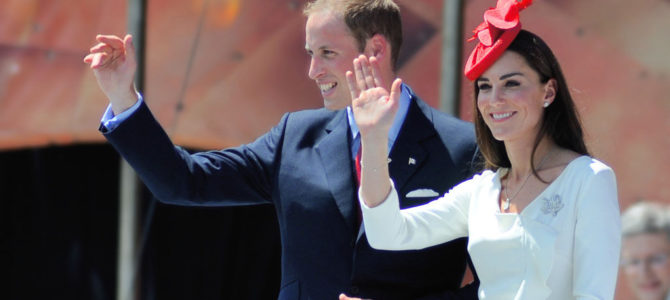Many Americans are positively besotted with the news of the newest baby born to Britain’s royal family—but more than a few of us are uncomfortable with the idea of citizens of a republic cooing over royalty. We needn’t worry, though, because royal baby mania is not really about politics.
Mary Katharine Ham struggles through this conflicted attitude and urges us not to take it seriously, while Dan McLaughlin takes his defense of the royal family a little too seriously.
“Maybe we shouldn’t be so quick to dismiss the usefulness, even (and maybe especially) in the 21st century, of a nation employing dynastic figureheads who carry themselves with dignity, live an idealized lifestyle, endure a certain measure of public prying and gossip, and perform ceremonies of national unity that remain separate from tribal politics,” he writes.
No, America does not need a purely ceremonial head of state who would (allegedly) stay above our political divisions and unite the country. Even McLaughlin recognizes that it’s not an option available to us—Americans, he says, “have gone too far down the republican road to turn back”—and I’m pretty sure it wouldn’t work out anyway. What family would we pick, and in today’s viciously politicized culture, who really expects that generation after generation could avoid the temptation to use their position to put a thumb on the political scales? The discipline of staying out of politics can only be sustained as a product of long tradition and rigorous training. Besides, we have other things that are supposed to fill these ceremonial roles—patriotic pieties like “support our troops” that no one except a few particularly grumpy radicals will admit to opposing.
But all of this naval-gazing is unnecessary, because the attraction of the royal family is not about politics. It’s about celebrity and about wishing really hard that we had American celebrities who behaved like the current generation of the British royal family.
After all, what are the royals, these days? They don’t wield power, they aren’t dominant patrons of the arts, and while the men traditionally perform military service in their youth, they are likely to be more of a liability than an asset on the battlefield, as Lt. Wales discovered in Afghanistan. No, the main job of the royals is to be good-looking and well-dressed, to attend ceremonies and go to fancy parties, and to be famous for being famous. Just like our celebrities, only better. A lot better, particularly now that the Charles-and-Diana soap opera has receded into the past.
The House of Windsor knows that the proper job of a celebrity is to set an example of personal elegance and unfailingly polite manners—and to stay out of politics. They do this very well, and William and Kate have the further advantage of being a genuinely likeable couple with really adorable kids, to whom they give refreshingly normal names.
I am sure we do have many celebrities like this today—athletes and actors and musicians who behave with dignity and don’t feel the compulsive need to lecture us about their causes. But it helps to have someone to set such a prominent example of celebrity done right—particularly at the tail end of our reality TV era, in which American celebrity has taken an excruciatingly gaudy turn. The royals are uniquely able to set this example, because they don’t have to engage in outlandish behavior just to get noticed. They don’t need to pursue fame, so they can have it while still being surprisingly normal people.
That’s why I say we should embrace royal baby mania. If we’re going to have celebrities—and we always will—better the House of Windsor than the House of Kardashian.









